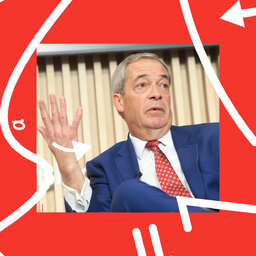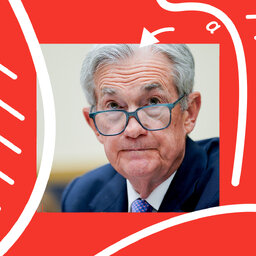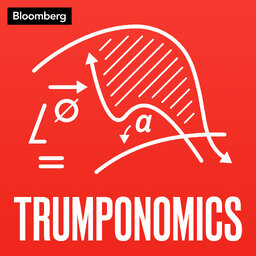Writing a Book With Paul Volcker
Paul Volcker made his mark as the inflation-defeating chairman of the Federal Reserve. Now at age 91, he's just published a new memoir called "Keeping At It." His collaborator happens to be Bloomberg Markets editor Christine Harper, who shares the inside story of what it was like to work with him.
In 1 playlist(s)
Trumponomics
Tariffs, crypto, deregulation, tax cuts, protectionism, are just some of the things back on the tabl…Social links
Follow podcast
Recent clips

Nigel Farage at Davos: 'The Consensus Era Is Over'
26:59

Live from Davos: Greenland Shock Tests Europe’s Spine—and Strategy—at Davos
38:13

How the Powell Probe Could Blow Up Trump’s Fed Plans
26:25
 Trumponomics
Trumponomics